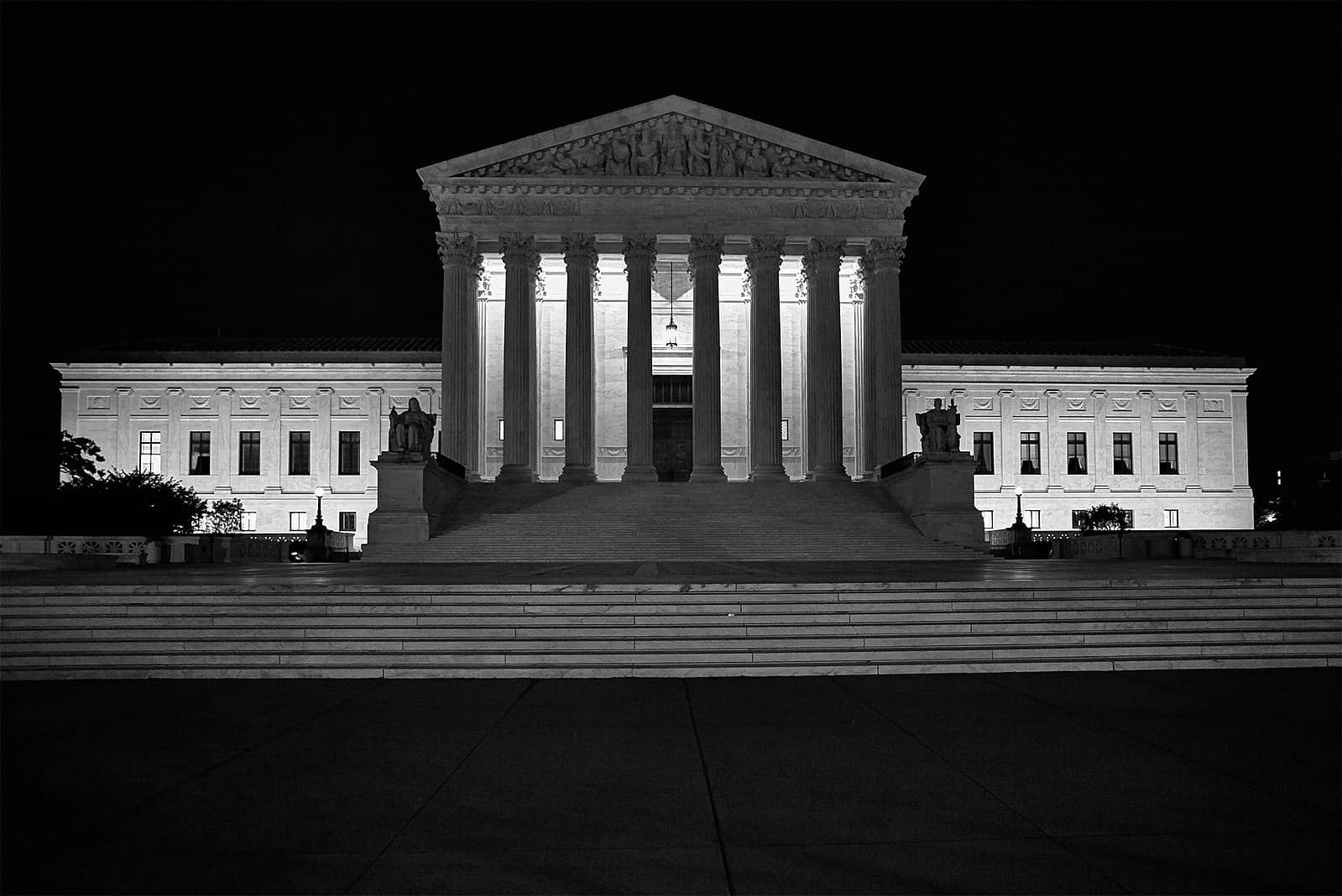Grace Bennett is a student at Harvard Law School and a member of the Labor and Employment Lab.
When Angie Moriana began working for Viking River Cruises in 2016, she signed an arbitration agreement that stripped her of her ability to sue Viking in a court of law, or to join class or collective actions. Two years later, Moriana sued Viking, alleging a number of claims, including failure to pay earned wages. The arbitration agreement she signed would normally preclude such a lawsuit, but Moriana hoped to proceed under California’s Private Attorneys General Act, or PAGA, which allows workers to sue their employers on the state’s behalf for violations of California labor law. In 2014, the California Supreme Court held that because PAGA actions are brought on behalf of the state, employees cannot individually waive their right to bring these claims. As a result, claims like Moriana’s, which would otherwise be forced out of court, or barred entirely, have been allowed to proceed.
For litigants and advocates who regularly search in vain for some path around courts’ strict enforcement of arbitration clauses, PAGA has been a substantial lifeline to keep California employment claims afloat. The PAGA enforcement vehicle, however, may soon meet its end. At the end of the month, the U.S. Supreme Court will hear Viking River Cruises, Inc. v. Moriana, and determine whether employers like Viking can force employees to waive the right to PAGA actions.
PAGA
PAGA, as noted above, allows workers to sue their employers for labor law violations on behalf of the state. The Act was initially intended as an innovative solution to the problem of employment law enforcement. While California imposes some of the most worker-friendly employment regulations in the country, it lacks the resources to comprehensively enforce those laws. PAGA, by deputizing “aggrieved employees” to bring suits on the state’s behalf, has increased the state’s enforcement power exponentially. Additionally, because civil penalties collected under the statute are split between employees and the state — with the state collecting 75% of any penalties — PAGA is an excellent revenue generator for the state’s Labor and Workforce Development agency.
In addition to enforcement, PAGA is useful as a tool for workers whose rights have been violated, but who have forfeited their right to court and collective actions through forced arbitration clauses. As of 2018, 67% of California employment contracts included mandatory arbitration clauses. These clauses, which have been repeatedly blessed by a string of U.S. Supreme Court cases, allow employers to mandate that any disputes between them and their employees be dealt with in an employer-friendly system that has been disastrous for litigants, who are routinely forced to abandon promising claims that cannot realistically or fairly be pursued in individual arbitration.
Thanks to the California Supreme Court’s ruling in Iskanian v. CLS Transportation Los Angeles, LLC, and the 9th Circuit’s subsequent acceptance of the Iskanian rule, however, PAGA has remained a pivotal enforcement tool for California workers. The California Supreme Court in Iskanian reasoned that because the real party in interest in a PAGA claim is the state, the right to bring such a claim cannot be waived by an individual. The U.S. Supreme Court has repeatedly denied cert on this issue, but in December, the Court finally agreed to review the Iskanian rule. In the Court’s hands, this could spell the end of the PAGA era, and could once again demolish any hope at a reliable mechanism around arbitration clauses.
Viking River Cruises v. Moriana
Viking is demanding that Ms. Moriana abandon her PAGA claims, pointing to the arbitration agreement that Moriana signed, which expressly waived her right to bring representative actions and required that any disputes be dealt with in bilateral arbitration.
In its petition for certiorari, Viking argued that the Court should reject the Iskanian rule as inconsistent with the Court’s 2011 and 2018 holdings in Concepcion and Epic Systems, which found that the Federal Arbitration Act requires the enforcement of class and collective action waivers. There is, according to Viking, “no meaningful distinction” between class, collective, and representative claims. In each type of claims, the named plaintiff is “insist[ing] that her right to inject claims implicating others into the dispute trumps her agreement to arbitrate bilaterally.”
California courts have held, and Moriana has argued, that representative actions are distinct because unlike class claims, PAGA claims are brought on behalf of the state. In a class action, plaintiffs bring claims on behalf of themselves and other similarly situated litigants. Since they enjoy complete ownership over their claims, they are deemed capable of individually waiving their right to assert them. PAGA suits are fundamentally distinct because litigants bring their claims as if they are the state. Thus, as Moriana argued before a lower court, an agreement between a private employer and their employee waiving PAGA actions cannot be enforced “because the state is the owner of the claim,” but “was not a party to the arbitration agreement.” In other words, PAGA litigants, unlike class action plaintiffs, have no right to waive these claims.
Viking rejects these arguments and notes that PAGA claims are controlled and initiated not by the state, but by employees like Moriana: “No California official initiated this litigation; Moriana did.” As in a class action, “from the moment a PAGA action is filed to the moment it concludes, the state is unable to exercise any control over it or direct it in any way.” Enforcing Moriana’s arbitration agreement is not akin to a waiver on behalf of the state, because “[n]othing that happens here will affect California’s ability to enforce its wage-and-hour laws against Viking.”
If anything, argues Viking, representative claims are more suspect than class actions because they are “even less compatible” with traditional bilateral arbitration. In prior cases, the U.S. Supreme Court required the enforcement of collective action waivers in part because collective arbitration might be long and messy, the exact characteristics that parties allegedly attempt to avoid when agreeing to arbitrate. Class actions, however, are at least bound by certain procedural requirements, which limit the size of classes and make collective arbitration potentially feasible. Representative action plaintiffs, meanwhile, can proceed on behalf of thousands of other workers without satisfying these initial procedural requirements. Thus, Viking argues that pursuing representative actions through arbitration is so potentially unruly as to render it impermissibly incompatible with arbitration.
Finally, Moriana attempts to distinguish this case by noting that the arbitration agreement at issue here seems to bar PAGA claims in any forum, whether in court or in arbitration. Neither Concepcion nor Epic, according to Moriana, held that courts must enforce wholesale waivers of particular statutory claims. Viking responds that PAGA does not create substantive rights. Instead, it is merely a procedural vehicle for litigants’ claims — no different than a class action. Thus, the arbitration clause here is no more an agreement entirely waiving PAGA claims than the agreements in Concepcion and Epic were agreements waiving class and collective action claims.
Should the Court rule in Viking’s favor, it will foreclose one of the last remaining avenues to relief for millions of workers who, often unbeknownst to them, are party to mandatory arbitration clauses. If employers can prevent PAGA claims from the start, then the Act’s innovative enforcement strategy is all but meaningless.










Daily News & Commentary
Start your day with our roundup of the latest labor developments. See all
February 24
In today’s news and commentary, the NLRB uses the Obama-era Browning-Ferris standard, a fired National Park ranger sues the Department of Interior and the National Park Service, the NLRB closes out Amazon’s labor dispute on Staten Island, and OIRA signals changes to the Biden-era independent contractor rule. The NLRB ruled that Browning-Ferris Industries jointly employed […]
February 23
In today’s news and commentary, the Trump administration proposes a rule limiting employment authorization for asylum seekers and Matt Bruenig introduces a new LLM tool analyzing employer rules under Stericycle. Law360 reports that the Trump administration proposed a rule on Friday that would change the employment authorization process for asylum seekers. Under the proposed rule, […]
February 22
A petition for certiorari in Bivens v. Zep, New York nurses end their historic six-week-strike, and Professor Block argues for just cause protections in New York City.
February 20
An analysis of the Board's decisions since regaining a quorum; 5th Circuit dissent criticizes Wright Line, Thryv.
February 19
Union membership increases slightly; Washington farmworker bill fails to make it out of committee; and unions in Argentina are on strike protesting President Milei’s labor reform bill.
February 18
A ruling against forced labor in CO prisons; business coalition lacks standing to challenge captive audience ban; labor unions to participate in rent strike in MN